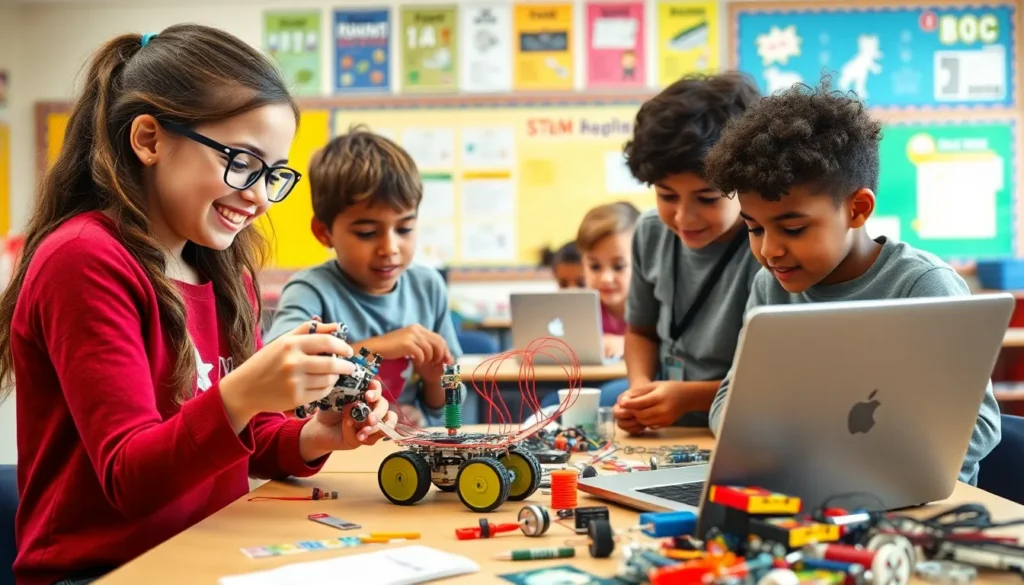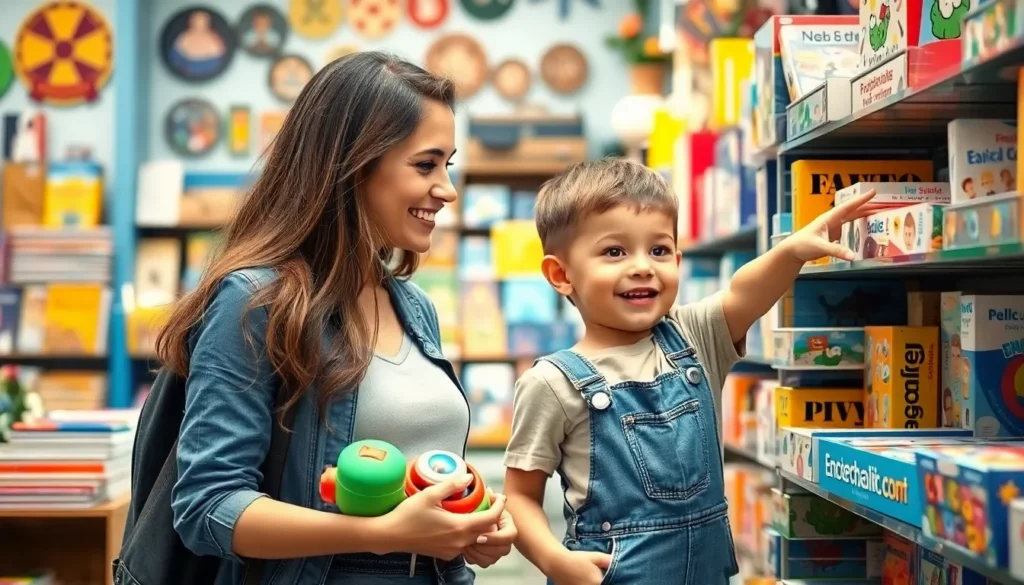Table of Contents
ToggleIn a world where classrooms can sometimes feel like a circus, homeschooling offers a refreshing alternative that puts the fun back in fundamentals. Imagine trading in the chaos of school drop-offs for cozy mornings in pajamas, all while your child learns at their own pace. It’s like having a VIP pass to education, where parents become the headliners in their child’s learning journey.
But wait, it’s not just about avoiding the morning rush or dodging the cafeteria mystery meat. Homeschooling empowers families to tailor education to fit their unique needs and interests. Whether it’s diving deep into science experiments or mastering the art of baking (because who doesn’t love cookies?), the possibilities are endless. So buckle up, because this article will explore the ins and outs of homeschooling, proving that learning can be as delightful as a well-timed punchline.
What Is Homeschooling?
Homeschooling refers to the educational practice where parents or guardians take responsibility for their child’s learning at home. This method offers a tailored approach to education, accommodating individual learning styles and interests.
Definition and Overview
Homeschooling allows families to create customized curricula that align with their educational goals. Students can explore subjects at their own pace, fostering a love for learning. Parents often utilize a combination of resources, including online courses, textbooks, and hands-on activities. This approach cultivates a stimulating environment, enabling children to develop critical thinking and problem-solving skills. Overall, homeschooling provides flexibility, promoting a unique educational experience.
Popularity and Trends
Interest in homeschooling has surged in recent years, driven by various factors. According to the National Center for Education Statistics, around 3.7 million students were homeschooled in 2020, marking a significant increase. Families seek alternatives due to dissatisfaction with traditional schooling, concerns about safety, or the desire for a more personalized education. Online resources and support networks have grown, further facilitating this trend. As awareness increases, so does the acceptance of homeschooling as a viable educational option.
Benefits of Homeschooling

Homeschooling offers various advantages that appeal to many families. Customizing education creates a learning environment suited to individual needs.
Flexible Learning Environment
Flexible learning environments play a crucial role in homeschooling. Students can learn during their most productive hours, whether that’s early mornings or late afternoons. Families often design their schedules around personal commitments, allowing for greater participation in family activities. This adaptability can also help reduce stress associated with rigid school schedules. With fewer distractions compared to traditional classrooms, students may focus better on their studies. Learning takes place in familiar and comfortable spaces, often enhancing retention and engagement.
Personalized Curriculum
Personalized curriculum is another significant advantage of homeschooling. Parents can tailor educational materials to align with their children’s interests and learning styles. Custom curricula allow students to delve deeper into subjects they find captivating, promoting a genuine love of learning. Educational resources are abundant, spanning books, online courses, and experiential learning opportunities. This individualized approach often leads to a better grasp of complex concepts. Parents actively track their child’s progress, fine-tuning the learning experience as needed.
Challenges of Homeschooling
Homeschooling presents unique challenges that families must navigate. Time commitment and socialization concerns stand out as two major issues.
Time Commitment
Time commitment ranks high among the challenges of homeschooling. Parents take on the dual role of educator and caretaker, often dedicating several hours daily to lesson planning and instruction. Each week might involve 20 to 40 hours depending on the curriculum’s complexity and the child’s needs. Juggling work responsibilities and household duties becomes increasingly difficult without a traditional school schedule. Balancing personal time with educational demands can lead to burnout. Structured routines help manage this commitment, but flexibility is essential to accommodate unexpected events.
Socialization Concerns
Socialization concerns frequently arise in discussions about homeschooling. Critics often argue that homeschooled children miss out on vital peer interactions. Engaging with peers in educational settings fosters interpersonal skills and friendships. Organized activities, such as co-ops and sports teams, can mitigate this issue. Local community groups also provide opportunities for socialization, helping homeschooled children connect with others. Many families prioritize social experiences, ensuring children participate in various group activities. Accessing diverse social environments enhances communication skills, promoting well-rounded development.
Different Approaches to Homeschooling
Numerous strategies exist for parents to adopt while homeschooling their children. Each approach caters to different learning preferences and goals, enhancing the educational experience.
Structured vs. Unstructured Learning
Structured learning relies on predefined curricula and schedules. In this approach, parents often follow state guidelines and utilize established educational resources. Unstructured learning, however, offers greater flexibility. It allows children to explore subjects based on interests rather than a strict schedule. Parents who choose this method often emphasize self-directed learning, enabling kids to take the lead in their education. Research suggests that both approaches can succeed, depending on the child’s learning style and family dynamics.
Thematic and Project-Based Learning
Thematic learning focuses on integrating various subjects around a central theme. This method encourages children to connect concepts across disciplines, fostering deeper comprehension. Project-based learning emphasizes hands-on experiences and real-world applications. In this approach, children work on specific projects that can range from science experiments to community service. Both thematic and project-based learning promote critical thinking and allow kids to engage with their education meaningfully. Parents often find these methods enhance creativity and retention of information, making learning exciting and relevant.
Homeschooling presents a unique opportunity for families to create a rich and personalized educational experience. By embracing flexibility and tailoring curricula to individual interests, parents can foster a lifelong love for learning in their children. While challenges exist, such as time commitment and socialization, the rewards often outweigh the difficulties.
With the right resources and support networks, families can navigate these hurdles effectively. As homeschooling continues to gain traction, it empowers parents to take charge of their child’s education in a way that traditional schools may not allow. Ultimately, homeschooling can be a fulfilling journey that nurtures creativity and critical thinking while preparing children for a successful future.







